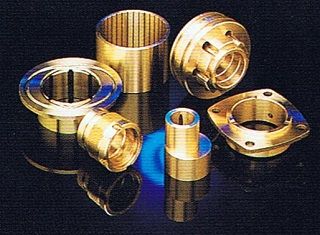From Guest Blogger Mormiz: How Engineering and Hydrometallurgy Are Contributing to Our World

What do engineering and Hydrometallurgy have in common?
Engineering and hydrometallurgy might not seem like they have an obvious connection but they are in fact connected disciplines. Think of hydrometallurgy as the engineering of metals but using a very specific process – essentially the metal is dissolved in water (or the aqueous phase) and then taken out of this solution by various methods by processes known as cementation or precipitation. There are companies like Ausenco hydrometallurgy which have refined hydrometallurgy especially where gold, uranium and copper are concerned. The engineering aspect of metallurgy comes into play when looking at the mining process of the initial metal ores and the further manipulation of the metal when it has been refined. Ascertaining how to achieve a purer metal and how to work with it more easily are the key aims of the profession.
How have they made significant contributions to our world?
Metallurgy is the process of extracting metal from ores and also the subsequent physical act of shaping these metals into various useful components, be it a steel bar or the wiring inside an electronic device. Humans have been working with metal since about 7000 BC when making the first tools and weapons which allowed us to advance as a civilization. Thousands of years on and all sorts of metals are used in various devices and everyday items from toothpaste tubes to tin food cans. In terms of culture, the mining and refining of precious metals has had a huge impact on the jewellery industry and has shaped trade routes over centuries. The growth of a huge metallurgy industry has made the extraction of metals and their circulation in world that much easier. You wouldn’t be using your computer or wearing a wedding ring without it!
Why is it a career choice for women?
If you’re not sure whether metallurgical engineering is for you, then it might be worth considering that, as a career, it weighed in at number 9 on Time’s list of the 20 best-paid college majors in 2011. And it’s never going to be an industry in decline given the world’s insatiable appetite for goods that contain metals. If money isn’t the driving factor in your career decisions, the field of hydrometallurgy would be a great choice for those who consider themselves to be scientifically and analytically minded; and who would enjoy the prospect of coming up with innovative solutions for the coming generation. There are a wide range of employers from Mittal Steel to NESCA, as well as individual mining companies. There’s even the possibility for self-employment with the necessary experience.
